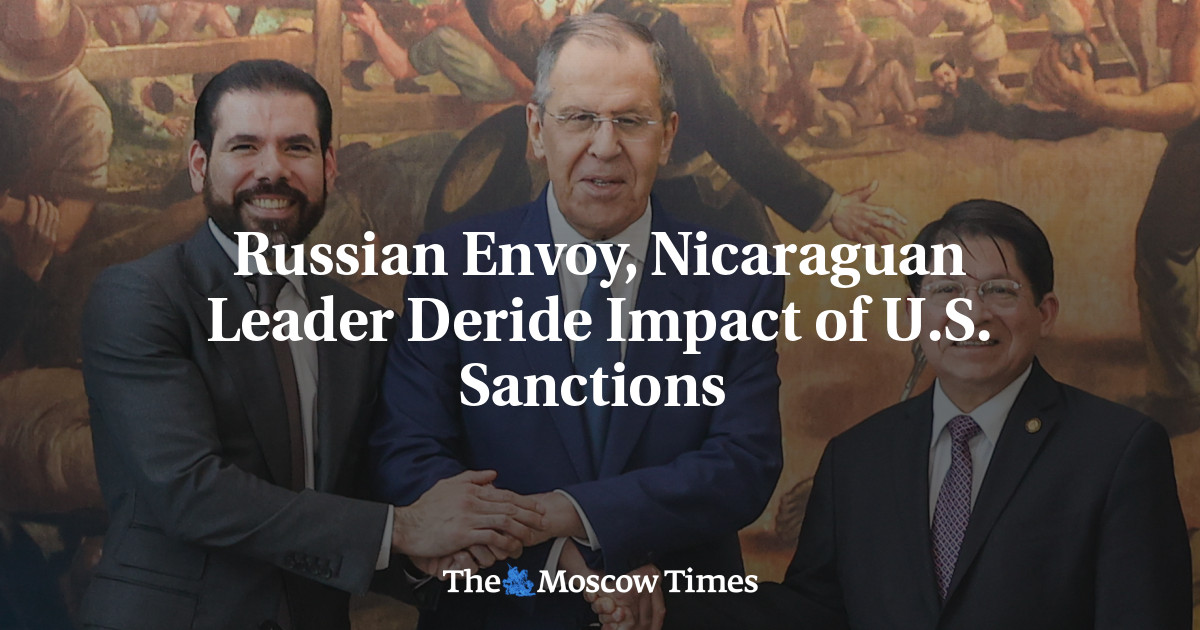
Russian Foreign Minister Sergei Lavrov and Nicaraguan President Daniel Ortega on Wednesday played down the impact of U.S. sanctions on officials of their two nations.
During a four-hour stopover in Managua, Lavrov met with Ortega and his wife, Rosario Murillo, who is also vice president.
The issue of sanctions arose after the U.S. Treasury Department announced that three Nicaraguan judges who played a role in stripping 316 Ortega opponents of their citizenship in February had been placed on a sanctions blacklist.
“Today, the United States sanctioned three judges because they have applied justice against terrorists. We already have hundreds of fellow state officials sanctioned, but we are no longer afraid of that,” Ortega said in a dialogue with Lavrov broadcast on state television.
Lavrov pointed out that people “who are under sanctions in Russia say that it is a recognition of their progress in the protection of Russia’s rights.”
Washington has sanctioned hundreds of Russian officials and institutions since the February 2022 invasion of Ukraine.
Earlier in the visit, Lavrov hailed Nicaragua as an ally against the U.S.-led coalition seeking to turn back Russia’s invasion.
“Westerners, under the auspices of such countries as the United States, try to unite as exclusive countries, try to proliferate their hegemony in conflicts such as, for example, in Ukraine,” Lavrov said, according to an official translation.
“We, with our Nicaraguan supporters, are going to fight against such tendencies and prevent such acts.”
Lavrov later departed for Cuba, the last stop in a Latin American tour that previously took him to Brazil and Venezuela.
Ortega later said in a state media broadcast that he spoke with Lavrov about “the efforts being made by the Russian Federation, by President [Vladimir] Putin, to seek peace with security and that is what Europe has to understand.”
Russia is an important ally of Nicaragua, providing it with wheat, vehicles and its Sputnik vaccine against Covid-19.
In 2017, Russia inaugurated in Nicaragua a station of the Glonass Satellite Monitoring System, equivalent to the U.S. Global Positioning System (GPS), which provides information for various civilian services.